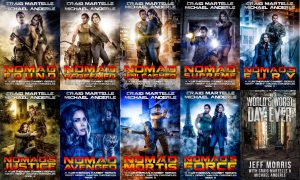Wednesday’s Short Story today – in honor of July 4th, U.S. Independence Day.
The Forsaken called Joseph
1775 – John Joseph Dixon
“A good morning to you, Mister Purdie!” Joseph called happily, tamping his pipe as he stood outside the small building where the printing business was located. As usual, John Joseph Dixon was covered head to tie with a wide-brimmed hat, always shielding his face from the sun. He wore the most stylish gloves, because he was an adherent of modern fashion and flaunted his London contacts when packages addressed to him arrived on the latest ship.
“And a fine morning it is, Mister Dixon,” Alexander Purdie replied before looking up and down the dusty street in front of his shop.
“We’ll be meeting at Charlton’s Coffeehouse to discuss important matters, ‘round eleven. I trust you’ll come.” Alexander Purdie was not a large man, but he was of sturdy frame. One of his tasks was to carry bundles of blank print and barrels of ink from carriage to shop. From recorder to journalist to printer to work hand, he did it all. He impressed the ink onto the blank page to share the latest news of the era, news carefully worded to cultivate attitudes and grow the disdain for British rule.
“Charlton’s Coffeehouse? Was only last night I was in Charlton’s Tavern. Methinks it is one and the same, kind sir,” Joseph jousted. Smile lines wrinkled around Purdie’s eyes as he laughed. His cheeks turned brighter red. He was an older man, a widower with grown sons. His printing business had recently been appointed the public printer with the responsibility to print the laws of the Virginia colony. He was proud of that contract, even though his rival Rynd had to die before the honor was bestowed on Purdie.
“You are right, of course,” Purdie replied. “A well-educated man interprets what he sees as his reality versus what he is told to believe. Ever since that stamp tax debacle of sixty-seven, coffeehouses have received such bad press.”
“Nicely stated, my friend,” Joseph replied, using a nail to tamp his tobacco as he dragged hard on his pipe to keep it lit.
To no avail. “Damn. The new crop smells like heaven, but it is not quite ready. Last year’s leaf is failing me,” Joseph complained. Turning his pipe over and tamping it against the heel of his boot, to dump the smoldering ash on the ground.
“I don’t have anything this morning, but tomorrow I’ll need your help, Mister Dixon. Thank you for selling me your share of the business and for your continued help. I haven’t been the same since Mary passed. William has come of age, but he doesn’t love the work. Not like you or I. Regardless, we are in good places, my friend, are we not?”
“I could not agree more, Mister Purdie. It is best for all. Tomorrow at nine, then?” Joseph asked.
“Eight! We will have much to print.” Purdie offered his hand and Joseph took it, shaking warmly, but with far less than his full strength.
Joseph remained on the Duke of Gloucester Street as Purdie returned to his shop.
The hunger burned within. Joseph’s secret was dark and tugged at the edges of his mind.
All the time. He fought with it, but knew it would not be long before he had to feed.
Blood was the only answer.
Joseph shivered. There had been quite the stir in Williamsburg the last time he fed on a calf too close to town. Word traveled quickly by way of too many wagging tongues.
Those upstarts who ran Pasteur and Galt apothecary shop knew that the calf’s death had not been natural. They didn’t believe in witches and searched hard for an alternate answer. While the town’s leaders crossed themselves, the apothecaries had rolled up their sleeves and gone to work, studying the facts without making suppositions.
They learned that the calf’s blood had been drained, even finding the marks where Joseph’s extended canines had found the jugular.
But the leadership was quickly distracted by the churn of events, the inflammatory words of the young rebellion. The speeches and letters of Jefferson, Monroe, Henry, and Lafayette. Two months had passed since Patrick Henry addressed the Second Virginia Convention in Richmond, where they had met because it hadn’t been safe in the capital of Williamsburg. Joseph had gone and watched. They’d met in a church and talked, endlessly they talked, but called for action. Patrick Henry was like a caged animal, ready to be released into the wild. He said what he had to say, finally, and then they returned to their communities and their homes.
Henry’s words resonated with Joseph and he felt their power. They reflected his own internal struggle. He remembered the speech well…
“They tell us, sir, that we are weak; unable to cope with so formidable an adversary. But when shall we be stronger? Will it be the next week, or the next year? Will it be when we are totally disarmed, and when a British guard shall be stationed in every house? Shall we gather strength by irresolution and inaction? Shall we acquire the means of effectual resistance, by lying supinely on our backs, and hugging the delusive phantom of hope, until our enemies shall have bound us hand and foot? Sir, we are not weak if we make a proper use of those means which the God of nature hath placed in our power. Three millions of people, armed in the holy cause of liberty, and in such a country as that which we possess, are invincible by any force which our enemy can send against us. Besides, sir, we shall not fight our battles alone. There is a just God who presides over the destinies of nations; and who will raise up friends to fight our battles for us. The battle, sir, is not to the strong alone; it is to the vigilant, the active, the brave. Besides, sir, we have no election. If we were base enough to desire it, it is now too late to retire from the contest. There is no retreat but in submission and slavery! Our chains are forged! Their clanking may be heard on the plains of Boston! The war is inevitable²and let it come! I repeat it, sir, let it come.
“It is in vain, sir, to extenuate the matter. Gentlemen may cry, Peace, Peace²but there is no peace. The war is actually begun! The next gale that sweeps from the north will bring to our ears the clash of resounding arms! Our brethren are already in the field! Why stand we here idle? What is it that gentlemen wish? What would they have? Is life so dear, or peace so sweet, as to be purchased at the price of chains and slavery? Forbid it, Almighty God! I know not what course others may take; but as for me, give me liberty or give me death!”
Joseph knew that he would forever be a prisoner within his own body, afraid to die, while being afraid to live. It was his cursed life for him to make the most of.
He chose a direction and followed it, the road out of town, toward the coast. He walked briskly and when out of sight of the townspeople, he started to run, far faster than any human should have. He slowed when he felt them ahead.
British military, coming to join the garrison in Williamsburg.
He dodged off the road, finding a place to hide, and he waited.
When they passed, he saw in their minds that soon they would stop, rest before entering Williamsburg. He followed them, quietly, as the silent predator he had become.
They stopped and sat by the side of the road.
“I need a crap,” one of them told his fellows, to their catcalls and laughter. He ventured into the woods, finding a secluded spot to take care of business. He leaned his musket against a tree, hanging his harness from it. He unbuttoned his red jacket, folding it and setting it respectfully on the ground. The soldier undid his trousers and started pulling them down when Joseph struck.
The Forsaken gripped the man’s chin and viciously yanked it backward until the neck bones strained, threatening to break. He bit deeply and drank fully while the man flailed, unable to scream.
When Joseph was done, he gagged at the thought of what he’d done, but reveled in the power it gave him. He looked at his victim. A soldier, with his pants around his ankles. The indignity of it and a horrible way to die.
Joseph leaned the man against the tree, pulled some nearby nightshade from the ground and stuffed it in the man’s mouth. The apothecaries would not be fooled as they knew what poisoning looked like. But it was the best Joseph had at the moment.
The Forsaken headed deeper into the woods taking the long way back to town. He wanted to meet with the good people at the so-called coffeehouse.
He could use a fresh cup. Joseph hoped that Thomas Jefferson would be there. The redhead had a way with words that never failed to make Joseph marvel. He enjoyed their spirited discussions.
“Give me liberty or give me death,” Joseph told the silence of the woods’ darkness. “I shall have neither, but maybe you can, good people of Virginia.”
Read all of Patrick Henry’s speech here: http://www.history.org/almanack/life/politics/giveme.cfm
Learn more about Craig Martelle and his other projects at http://www.craigmartelle.com



